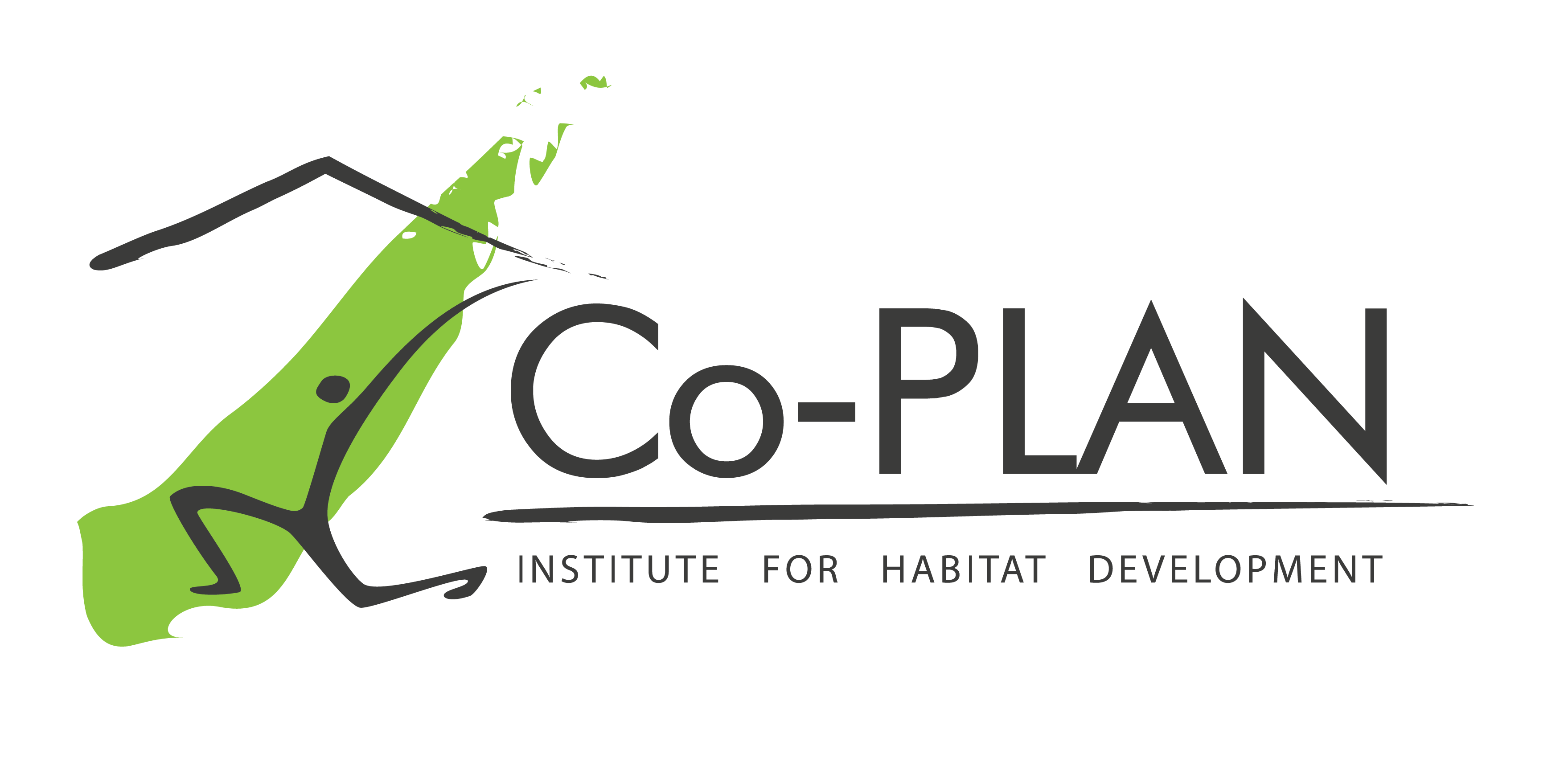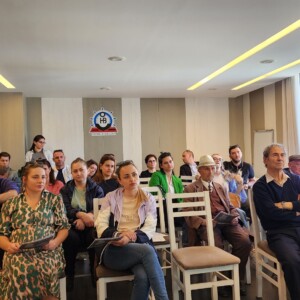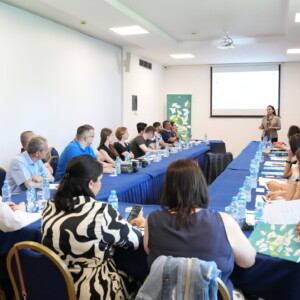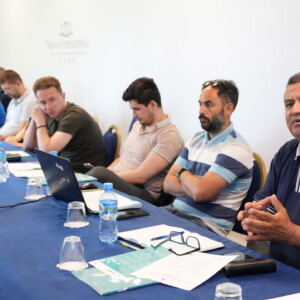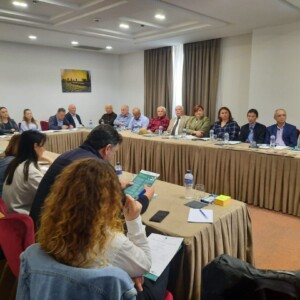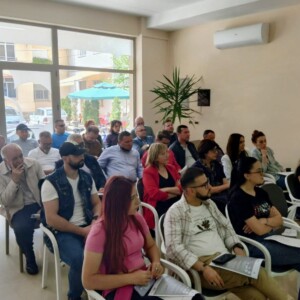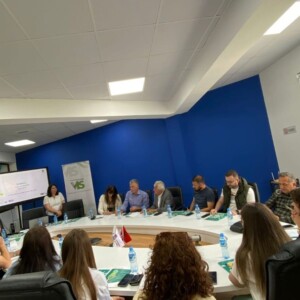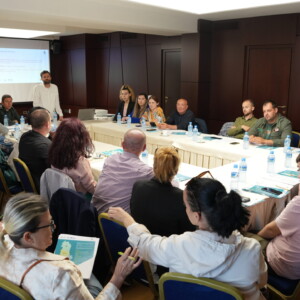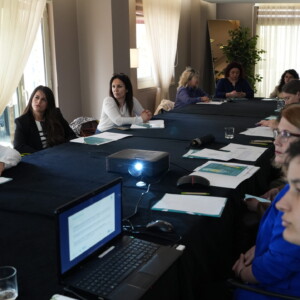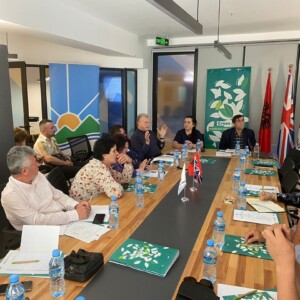GreenAL – Roundtables Unite Stakeholders Across Albania
From April through June, GreenAL partners have conducted 9 roundtables in different counties across Albania, of which 8 regional roundtables took place in the major cities of each Qark, specifically in Vlorë, Durrës, Elbasan, Shkodër, Fier, Pogradec, Dibër, Kukës and concluded with a national roundtable in Tirana.
During these sessions, the GreenAL team presented the project, outlining its main objectives, key themes, funding opportunities for participating organizations, project timeline, gender perspective integration, and the thematic support for the environmental CSOs. Participants also received information about the GreenAL project’s website and social media platforms, which will aid in promoting the work of environmental CSOs and monitoring devices that will be used in monitoring acoustic, air, water, and soil pollution.
The aim of these roundtables was to bring together various stakeholders, with a primary focus on ECSOs, environmental activists, experts, academia, businesses, municipal representatives, and other relevant institutions at local, regional, and national levels and to serve as a space for presenting environmental issues relevant to the GreenAL project. These roundtables helped in understanding the challenges faced by ECSOs and exploring their potential contributions for addressing the identified environmental problems.
The three themes of the project are Climate Change, Nature and Pollution, which are in line with the implementation of the Green Agenda for the Western Balkans. The focus topics extracted from the actors present in these events were: the improvement of infrastructure and urban waste management, the protection of biodiversity, the rehabilitation of habitats, the inclusion of local communities and CSOs in projects, the protection of protected areas, the improvement of habitats damaged by the construction of HPPs, monitoring the effects of climate change, monitoring water, air and soil quality, as well as measuring acoustic pollution.
Throughout these events, participation included representatives from 95+ organizations, 15+ institutions, 15+ municipalities, 5+ educational institutions, and other relevant stakeholders. The roundtables themselves engaged over 230 individuals, with a gender distribution of 40% men and 60% women.
The presentation used during the meetings can be found here.
